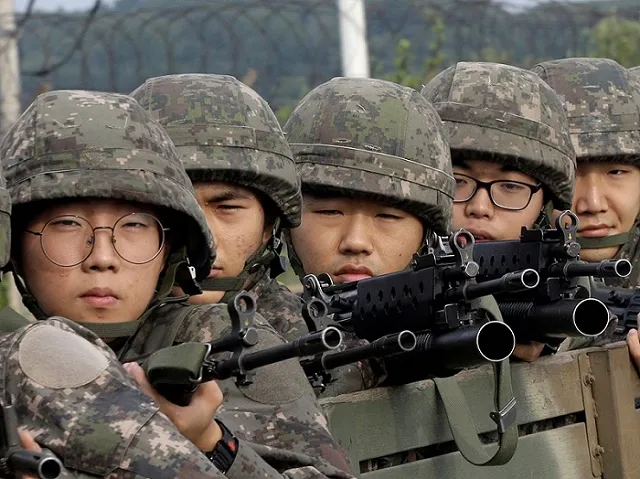Việc chấp thuận này là một bước thay đổi mới cho một lập trường được tòa án bảo vệ hàng chục năm qua và dự đoán sẽ ảnh hưởng đến 930 trường hợp đang chờ xem xét.

Ảnh minh họa. Nguồn: Business Insider
Quyết định của tòa đưa ra cho trường hợp một người đàn ông 34 tuổi họ Oh, theo tôn giáo Nhân chứng Jehovah, là trường hợp mà lệnh phạt được tòa phúc thẩm ủng hộ.
Lý do vì tôn giáo, tín ngưỡng đã được xem là không hợp lệ đối với quy định xin miễn không tham gia nghĩa vụ quân sự ở Hàn Quốc từ năm 1969 đến 2004.
Và nếu cá nhân nào từ chối đi nghĩa vụ mà không có lý do hợp lệ sẽ bị phạt tù với thời hạn lên đến ba năm, theo Luật nghĩa vụ quân sự.
Có 930 trường hợp đang bị tòa án xem xét do vi phạm Luật nghĩa vụ quân sự với cùng lý do vì tôn giáo, người phát ngôn của trụ sở quốc tế của Nhân chứng Jehovah cho biết.
Đây được xem là một tín hiệu thay đổi trong quan điểm về nghĩa vụ quân sự của Hàn Quốc. Tòa Hiến pháp Hàn Quốc hồi tháng 6 cũng đã nêu rằng luật nghĩa vụ hiện tại không phù hợp với hiến pháp. Cũng đã có một số trường hợp được “trắng án” tại tòa sơ thẩm về việc lấy lý do tín ngưỡng, tôn giáo từ chối nghĩa vụ quân sự.
Bộ Quốc phòng cho biết đã rút ngắn 2 đến 3 tháng của tổng số thời gian phục vụ quân ngũ từ nay đến năm 2022, tức là từ 21 tháng xuống còn 18 tháng.
Hàn Quốc là một trong số ít quốc gia mà việc đăng ký nghĩa vụ quân sự đối với nam được quy định trong luật.
South Korea Supreme Court allows conscientious objection to military service in landmark ruling
(Reuters) - South Korea's Supreme Court said on Thursday that conscientious objection is a valid reason to refuse mandatory military service, a landmark change in the court's decades-long stance that is expected to impact about 930 pending cases.
The full-bench decision overturns about five decades of precedents that punished conscientious objectors for refusing mandatory military service and is in step with changing South Korean attitudes as relations with North Korea thaw.
The court's decision concerned only one defendant, a 34-year-old man surnamed Oh, a Jehovah's Witness whose trial court guilty verdict was upheld at the appellate court.
Through decisions in 1969 and 2004, South Korea's Supreme Court had maintained that religious beliefs or conscience were not valid reasons to refuse mandatory military service.
South Korea's Military Service Act says that if a conscripted person refuses "without valid reason" the person is to be given jail time of up to three years.
Some 930 cases are currently in court concerning alleged violations of the Military Service Act, according to Jarrod Lopes, spokesman for Jehovah's Witnesses' world headquarters.
There were signs of a change in attitude toward mandatory military service earlier in the year, with South Korea's Constitutional Court in June ruling that the current law -- which does not specify alternatives to military service -- does not align with the country's constitution. There was also a number of "not guilty" verdicts in lower courts for conscientious objectors.
In a survey of 527 men eligible for mandatory military service, conducted from May this year, 38.8 percent said that those in alternative service, such as serving as industrial workers or a public health doctor, can be regarded as servicemen as long as they live in camps during the period, said the National Human Rights Commission of Korea.
The defense ministry said earlier this year it will gradually shorten periods of mandatory military service by 2-3 months until 2022, from 21 months to 18 months for army servicemen.
South Korea, which is still technically at war with North Korea, is one of the few countries that has mandatory conscription for all men as a rule.
However, a recent thaw between relations has resulted in an inter-Korean military pact signed in September, with the two Koreas agreeing to halt military drills, set up a no-fly zone near the border and gradually remove landmines and guard posts within the Demilitarized Zone, among other steps.


